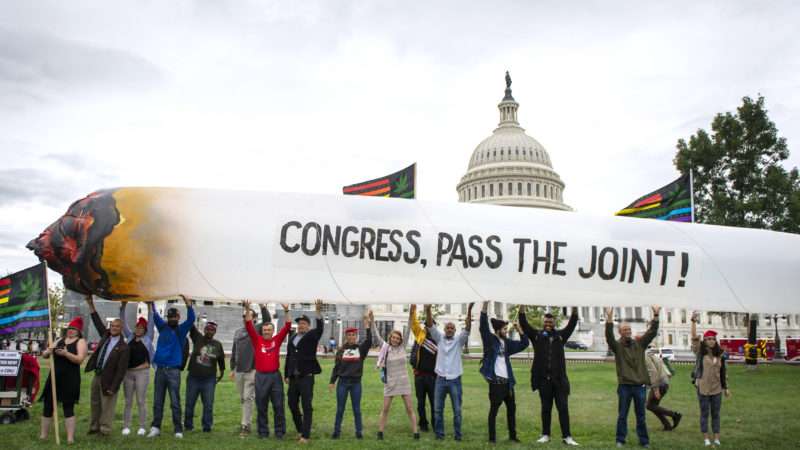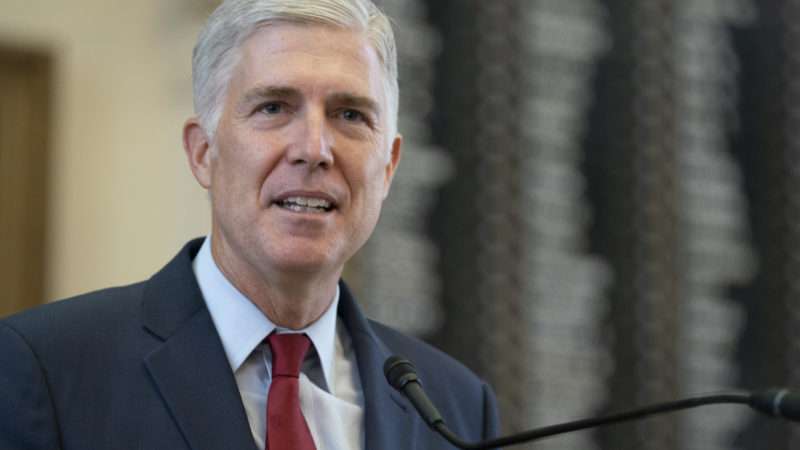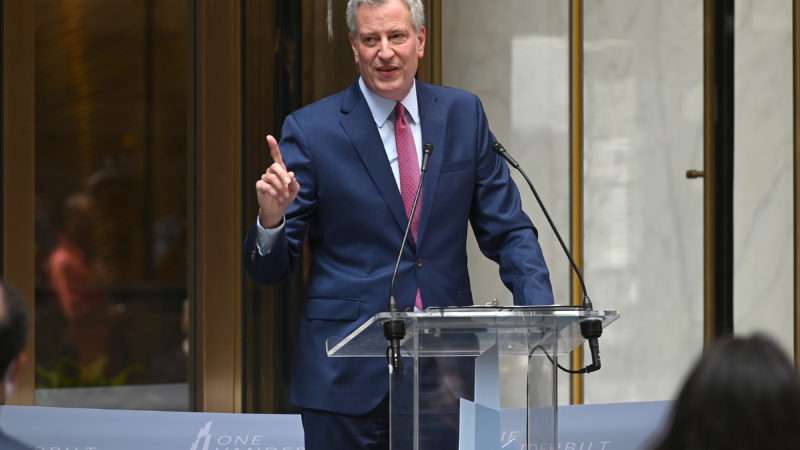When the government uses civil asset forfeiture laws to steal the property of innocent people, it often backs down upon encountering unexpected resistance, as bullies tend to do. But as Gerardo Serrano’s experience with legalized larceny illustrates, those victories do not necessarily help other people who find themselves in the same Kafkaesque situation.
Five years ago, Serrano was on his way to visit his cousin in Mexico when Customs and Border Protection (CBP) agents in Eagle Pass, Texas, found a magazine containing five .380-caliber rounds in the center console of his pickup truck. Serrano, a U.S. citizen with a Kentucky concealed-carry permit, said he did not realize the magazine was in the vehicle and offered to leave it behind as he continued on his journey. But as far as the CBP agents were concerned, those five cartridges made Serrano an international arms smuggler. Although he was never charged with a crime, the agents seized the truck, a 2014 Ford F-250.
After Serrano paid a $3,800 cash bond for the privilege of trying to get his truck back, two years went by without a hearing. Then in October 2017, a month after the Institute for Justice helped him file a lawsuit arguing that the government’s forfeiture practices violated his Fifth Amendment right to due process, CBP suddenly decided to return his vehicle, which the government had never officially tried to keep. Serrano continued to pursue his lawsuit, which aimed to qualify as a class action, because he wanted to stop this sort of thing from happening again. A federal judge shot him down two years ago, and yesterday the U.S. Court of Appeals for the 5th Circuit agreed that Serrano had failed to state a due process claim.
That conclusion is astonishing when you consider the options that Serrano confronted after CBP took his truck. The notice that the agency sent him 10 days after the seizure explained that he could do one of six things:
1. He could file a “remission petition” begging the same agency that took his truck to give it back instead of selling it and keeping the money.
2. He could submit an “offer in compromise,” agreeing to pay the government part of his truck’s value in exchange for its return.
3. He could “abandon any interest in the property,” letting the government keep it.
4. He could “request court action and have his case referred to the U.S. Attorney for institution of judicial forfeiture proceedings.”
5. He could “do nothing,” leading to the same result as Option 3.
6. He could “offer to substitute release of the seized property on payment,” meaning he would get the truck back after paying the government its full market value.
Serrano’s only realistic hope of getting his truck back without succumbing to government extortion was Option 4, which was the one he picked. Yet he waited two years as the government dragged its feet, neither returning the truck nor filing a forfeiture complaint that Serrano could then challenge. In fact, Serrano never got that opportunity, since CBP evidently decided that proceeding with the forfeiture was not worth the effort, expense, legal risk, and bad publicity. Call that Option 7.
After surveying this confusing, intimidating, infuriating, expensive, and time-consuming process, the Fifth Circuit concluded that nothing was amiss.
The three-judge panel conceded that “the seizure of a vehicle implicates an important private interest,” which weighed in Serrano’s favor. But it deemed “the risk of erroneous deprivation of such interest” to be “minimal,” because of all “the remedial procedures”—every one of them rigged in the government’s favor—that theoretically “permit a claimant to contest the deprivation of his vehicle.”
The third factor that the appeals court considered, guided by the 1976 Supreme Court case Mathews v. Eldridge, was “the Government’s interest, including the function involved and the fiscal and administrative burdens that the additional or substitute procedural requirement would entail.” That factor, the panel concluded, favored the government.
“We cannot ignore the context of the underlying seizure,” the court said. “The Government’s interest in preventing the unlawful exportation of munitions, drugs, and other contraband is significant.”
You might think that the relevant “context” in this case was that Serrano lost his truck simply because he forgot about the five handgun rounds he had left in the center console. Although CBP claimed “the truck was used in an attempt to illegally export munitions from the United States, in violation of federal law,” it is obvious that Serrano, who never even crossed the border with his “munitions” and offered to leave them behind when he realized his mistake, was not involved in any such activity. Serrano was never charged with violating federal law, and neither was his truck, since the government did not actually file a forfeiture complaint. Given the situation, the 5th Circuit’s invocation of the government’s interest in preventing international arms smuggling is comical.
The judges also noted that “a significant administrative burden would be placed on the Government if it was required to provide prompt post-seizure hearings in every vehicle seizure.” Due process undeniably imposes a burden on the government; that is the whole point. If the government is worried about that burden, maybe it should stop stealing people’s stuff on the slightest pretext.
The Institute for Justice says it will appeal the 5th Circuit’s decision to the Supreme Court. “When the government takes someone’s property, the owners should have an opportunity to challenge the seizure in court immediately, not wait days, months, or, as in Gerardo’s case, even years,” said Institute for Justice attorney Anya Bidwell. “The Supreme Court has already said that there must be a prompt hearing when you’re arrested. It also requires pre-seizure hearings for real estate. It makes no sense for the Fifth Circuit to hold that a car is somehow different and you are not entitled to quickly see a judge and contest its seizure.”

from Latest – Reason.com https://ift.tt/2RB2qpZ
via IFTTT




